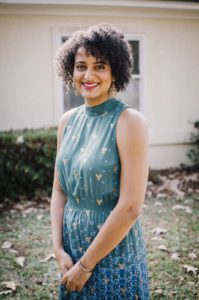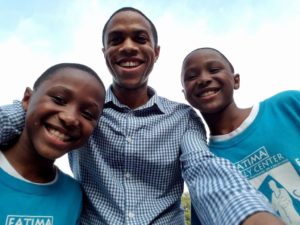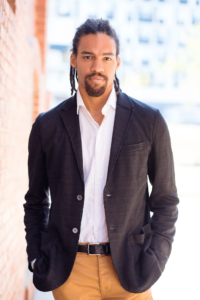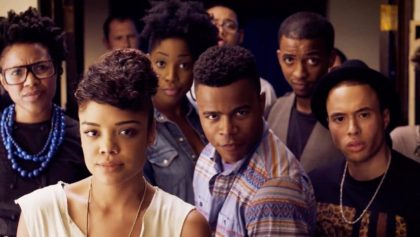A significant part of the coalition that elected Barack Obama twice to the presidency finds the new Trump administration to be illegitimate. A new poll found that 57 percent of all 18-to-30-years-old eligible voters, and two-thirds of Black millennials don’t believe the Trump administration represents their interest. Of those that voted for Clinton in last years election, many felt conflicted by the choice, per polling by the Center for Information and Research on Civic Learning and Engagement.
Fast forward nine months. A continuous stream of scandals, the alleged involvement of a foreign power to sway the election, aggressive and — at times, unbecoming — rhetoric, has left many, particularly millennials, weary of the White House and the political climate the Republican-controlled government is forming.
The response to this has been a spike in millennials seeking office. “The election of Donald Trump was a big wake-up call. It showed people in my generation, which has been fairly apathetic on the whole, that elections actually do have consequences,” Max Dworin, creator and host of the podcast Next Gen Dem, said. “Now that millennials see how important elections and our elected officials are to our daily lives, you are seeing many come to the realization that the only way they can have an impact on this broken system is to run for office themselves.
“For millennials, the election was in our faces every day — on Facebook, Instagram, Twitter, you name it. It was unavoidable. What was plain as day is that the candidates we were given at the presidential level, as well as down the ballot, did not look like us, did not sound like us and did not think like us.”
The pushback against Trump, the Republican administration and the seeming “War on Millennials” have taken many forms and will, undoubtedly, affect future elections to come.
“Since Election Day, over 15,000 women have reached out to EMILY’s List to sign up to run for office and over 7,000 supporters who want to help them run,” said Rebecca Thompson, director of EMILY’s List’s “Run to Win” program. “Run to Win” is a coordinated effort toward getting more women elected in down-ballot races.
“What we’re seeing is that the women coming to our trainings are younger and, in many instances, more diverse. It’s why we’ll be hosting trainings in cities like Chicago and Atlanta to ensure that the women who are stepping up to run have the resources and support they need to run and win.”
To understand the motivations behind this push toward millennial civic involvement, Atlanta Black Star invited three Black and Latinx millennial down-ballot candidates to share their platforms and explain their motivations for running. Millennials represent the largest single voting bloc in American politics; it is the goal of this article to understand what this bloc wants, in its own words.
Brittany Norris, Candidate for City of Atlantic Beach Commission, Seat 5

Brittany Norris, 29, is running for Seat 5 on the Atlantic Beach (Fla.) City Commission. (Photo courtesy of Brittany Norris)
Atlantic Beach, Fla., a quasi-independent barrier island suburb of Jacksonville, is tiny in the grand scheme of things. With a population of just 13,452 in 2016, the city is dwarfed by fellow barrier island cities Jacksonville Beach and Ponte Vedra Beach and by Jacksonville, the largest city by area in the contiguous United States. Despite this, the city is proud of its history and is hopeful for its future.
Brittany Norris, 29, is seeking Seat 5 of the City of Atlantic Beach Commission, a seat that historically has been filled by representatives that did not live in the district the position supposedly represents, Norris seeks to re-form Atlantic Beach into a vibrant, re-energized community. She is the sole challenger to incumbent Mitchell “Mitch” Harding, an one-term mayoral appointee.
“In last year’s election, it was very disappointing. I couldn’t see a candidate in any party — Republican, Democrat, Independent — that I felt adequately represented me,” Norris said. “That may stem from people not being invested in politics 10 or 20 years ago; we may have set the stage by our inactivity.”
Norris started a local group after the election that encouraged civic involvement, ranging from attending town council meetings to running for office. She said she was partly inspired by former President Barack Obama, who called on millennials to get involved and engaged in civic activities.
In large part, Norris ran in response to Trump but not directly because of him. Seeing Trump as a symbol of a more oppressive, bigoted America, Norris decided to run because “it is just not enough to talk about it on Facebook and Twitter; you have to roll up your sleeves and get your hands dirty.” She decided to run in part to better engage with her community and in part to encourage diversity in the city leadership.
One of Norris’ main objectives is to improve the lines of communication between City Hall and the citizenry; currently, most communication is handled by posting the lawfully required notices in the newspaper. This results in many of Atlantic Beach’s residents, particularly the sensory-impaired and mobile users, being uninformed of city actions. Additionally, Norris is seeking to protect the beaches and dunes by hiring the services needed to enforce city ordinances. Finally, she wants to influence commercial development in her district so that the quality of life and the wishes of the residents are respected and preserved.
“I’m working to make sure that my side of town doesn’t get forgotten,” Norris said.
Daniel Graves, Candidate for Cleveland City Council, Ward 7

Daniel Graves, 26, is a candidate to represent Cleveland’s Ward 7 on the Cleveland City Council. (Photo courtesy of Daniel Graves)
Like many other Northeastern cities that are struggling to survive after losing its industrial core, Cleveland faces a declining tax base, deterioration of the city’s infrastructure, significant unemployment and education gaps.
Despite this, the city once dubbed the “Mistake on the Lake,” which was built around Standard Oil, is in the midst of reinventing itself. Buoyed by a great deal of city pride — highlighted, in no small part, by the LeBron James-led Cleveland Cavaliers winning three Eastern Conference titles and an NBA championship in three years — the city is dealing with a wave of urban revitalization.
Daniel Graves, 26, a social studies teacher, wants to represent Ward 7 on the Cleveland City Council. Ward 7, a highly depressed, highly impoverished community, is conveniently close to downtown, Case Western Reserve University and the Cleveland Clinic. Hoping to capitalize on the sense of urban renewal affecting these areas, Graves is campaigning on a platform driven primarily by creating job opportunities.
“I have come to realize that policy innovation happens at the local level,” Graves said. “The local community is the laboratory for political innovation.”
Inspired by “the Progression Revolution” that was centered on former Democratic presidential candidate Bernie Sanders, Graves has decided that the best way to become civically engaged is by running to represent his district. “I believe that this election will be a deciding factor if my district turns around,” Graves added. “The poverty rate is off the charts and the debt there is crippling. I don’t want to see my neighborhood become another East Cleveland or another neighborhood similar to that,” Graves said. “We can either seek to utilize our location and the advantages it give us to revitalize our community or we can elect another typical politician, a councilperson who is just looking out for himself.”
Graves’ campaign focuses on “Push for More,” an internally centered agenda to push the community toward claiming a share of the growth other areas of Cleveland are enjoying. Graves is seeking commercial and residential investment in the ward, the establishment of a strong community economic committee to spur investment, and a means to attract commercial development to the ward while working to build up the community’s infrastructure.
“This is not only an opportunity to turn around a neighborhood, but an opportunity to create a shockwave not only in Cleveland, but nationally,” Graves concludes. “A win could help to set the groundwork to help other millennials get elected across Ohio”
Pierce Freelon, Candidate for Mayor, Durham, North Carolina

Pierce Freelon, 33, is running for mayor of Durham, N.C. (Photo courtesy of Pierce Freelon)
Unlike the Northeast, the South has been a fount of new growth. Buoyed by corporate growth in the area and rampant revitalization, the South has been flush with new job opportunities. This is especially true for Durham, N.C., which has seen significant growth.
This also is a city burdened by deep racial strife. The false allegations of the 2006 Duke University lacrosse team, for example, stroke deeply formed fault lines about how race and racism formed the city.
Pierce Freelon, 33, was born and raised in Durham. A professor and musician, he is seeking the mayor’s seat in large part due to a deep love of his hometown and a deep political legacy he inherited.
“There hasn’t been a time in my lifetime where we needed fresh ideas and bold leaders to step up to the mantle of leadership more than now,” Freelon said. “There’s a changing of the guard; people are ready for bold leadership and Durham is a city that has been through a lot of changes in the last 10 to 15 years.
“This city is a microcosm and we need creative and unapologetic visionaries to help envision a future that is equitable and just and based on principles and values.”
For Freelon, one of the first presidential elections he has been involved in was the 2008 run by Obama. Obama’s two victories gave the Black community eight years of pride, knowing that the community has received enough respect to be regularly included in the political conversation. However, the election of Trump and the response to it, including klan rallies in nearby Shelby, made it clear that the racism and bigotry of old are still around and stronger than ever.
“Some of the [uglier] elements of our history [are] bubbling back up to the surface and a lot of the folks that felt marginalized that a Black man was in the White House felt vindicated by the election of Trump,” Freelon said. With the unprecedented Republican supermajority in the state legislature, there has been pushback and this influenced my decision to run now.
Using the Swahili phrase “ni wakati” — which roughly translates into “it’s time” — as an inspiration, Freelon is pushing for change now. Freelon is seeking to promote community inclusion in decision making and seeking equitable and sustainable growth strategies for the city. As a candidate for mayor he is also calling for increased investment in the city’s youth and police accountability.
“I see my campaign as an opportunity to breathe new life into the city,” Freelon said. “We need to do a better job communicating with our residents, particularly residents of my parents’ generation. We need to do a better job at governing.”
Forging the Future
In 2016, millennials passed baby boomers as the largest voting bloc in American politics. The way this group votes has the potential to decide how this nation will function and be shaped for decades to come.
“Young people’s sense that America needs a moral rebirth is not just economic,” Derek Thompson of the Atlantic reported. “The Black Lives Matter movement has done for racism and police brutality what Occupy [Wall Street] did for financial realities — not discover a fresh injustice but rather expose a long-festering moral blight.
A popular saying is “The world belongs to the young.” If that is indeed the case, the way the young choose to take up this responsibility is an important indicator of our nation’s ability to move forward and progress. The next crop of leaders is suggesting that they are ready for the challenge.
As Freelon puts it: “It is time for the next generation of leaders to move us forward.”

